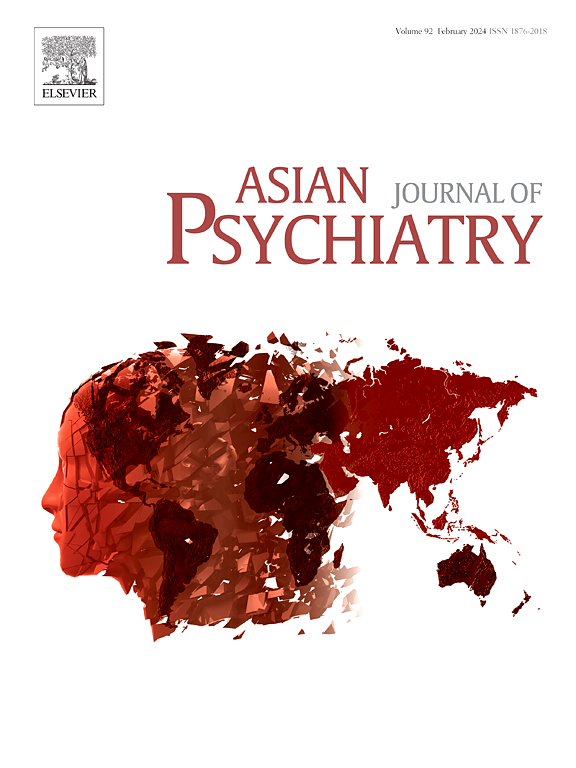在精神病学住院医师中推进神经科学教育:当前态度、趋势和挑战的调查
IF 4.5
4区 医学
Q1 PSYCHIATRY
引用次数: 0
摘要
目的本研究评估精神病学住院医师项目中神经科学教育的现状,重点关注多方利益相关者对有效培训的态度、新趋势和感知障碍。方法对美国精神病学住院医师项目进行在线调查,调查对象为院系主任、教员、项目主管、执业精神科医生和学员。该调查包括培训经历、首选教学方法和感知挑战等问题。采用描述性统计分析反应。结果共收集了来自26个 美国的106份问卷州。52.8% 的受访者在四年的住院期间接受了神经科学培训。74.5 %的受访者表示接受了两个月的神经学轮转培训,但更高比例的受访者更喜欢更长的神经学轮转培训。有效的神经科学教育的主要障碍包括教师专业知识不足、课程不足和教师兴趣有限。受访者青睐临床案例应用、神经影像学和研究整合等教学方法。几乎所有的参与者都同意,加强神经科学教育可以改善病人的护理,并有助于减少对精神疾病的耻辱感。结论本研究建立在先前对精神病学住院医师培训中神经科学教育的调查基础上,同时关注最新的趋势和态度。研究结果强调精神病学住院医师需要纵向和临床相关的神经科学培训,以及包括神经调节和神经影像学在内的知识空白领域。调查结果还强调了改进课程设计和整合的必要性。本文章由计算机程序翻译,如有差异,请以英文原文为准。
Advancing neuroscience education in psychiatry residency: A survey of current attitudes, trends, and challenges
Objective
This study assesses the current state of neuroscience education in psychiatry residency programs, focusing on attitudes, emerging trends, and perceived barriers to effective training by multiple stakeholders.
Methods
An online survey was distributed to psychiatry residency programs in the U.S., targeting department chairs, faculty, program directors, practicing psychiatrists, and trainees. The survey included questions on training experiences, preferred teaching methods, and perceived challenges. Descriptive statistics were used to analyze responses.
Results
A total of 106 responses were collected from 26 U.S. states. 52.8 % of respondents received neuroscience training throughout all four years of residency. 74.5 % reported receiving two months of neurology rotations but a higher proportion of respondents shared preference for longer neurology rotation training. Key barriers to effective neuroscience education included insufficient faculty expertise, inadequate curricula, and limited faculty interest. Respondents favored teaching methods such as clinical case applications, neuroimaging, and research integration. Nearly all participants agreed that stronger neuroscience education improves patient care and helps reduce stigma toward psychiatric disorders.
Conclusion
The study builds upon prior surveys in neuroscience education in psychiatry residency training, while focusing on most recent trends and attitudes. Findings highlight the need for longitudinal and clinically relevant neuroscience training in psychiatry residencies, as well as areas of knowledge gaps including neuromodulation and neuroimaging. Findings also highlight the need to improve curriculum design and integration.
求助全文
通过发布文献求助,成功后即可免费获取论文全文。
去求助
来源期刊

Asian journal of psychiatry
Medicine-Psychiatry and Mental Health
CiteScore
12.70
自引率
5.30%
发文量
297
审稿时长
35 days
期刊介绍:
The Asian Journal of Psychiatry serves as a comprehensive resource for psychiatrists, mental health clinicians, neurologists, physicians, mental health students, and policymakers. Its goal is to facilitate the exchange of research findings and clinical practices between Asia and the global community. The journal focuses on psychiatric research relevant to Asia, covering preclinical, clinical, service system, and policy development topics. It also highlights the socio-cultural diversity of the region in relation to mental health.
 求助内容:
求助内容: 应助结果提醒方式:
应助结果提醒方式:


